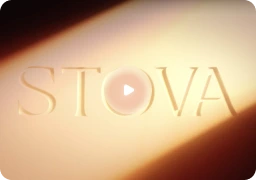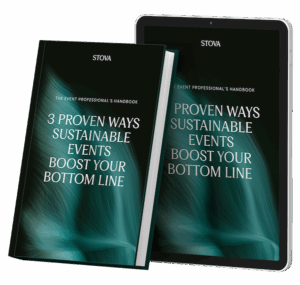21 Ways to Use Social Media to Improve All Aspects of Your Next Event
August 3, 2021
About half of all people in the world currently hold at least one social media account, and many people have more than one. Social media is a great way for us to briefly escape from the stresses of the day by connecting with friends, family, celebrities, and brands. But besides the ability to entertain us and connect us with others, social media event marketing also provides an incredible way for event organizers to interact with attendees before, during, and after events.
This article will highlight some of the most popular social media platforms to demonstrate how event professionals can effectively use these services to make their events successful from beginning to end.
The Top Social Media Platforms to Consider for Your Event
While there seems to be a new social media site that explodes in popularity every few weeks, there are a few that have stood the test of time:
- LinkedIn – LinkedIn is generally considered a site geared toward business professionals, allowing for networking and presenting a more professional image. The service is a great way to reach audiences through messaging and posts that can be easily shared and promoted by interested businesses and individuals.
- Facebook – Facebook is the largest social media platform on the internet. With such a massive user base and tools that provide easy ways to promote events and encourage engagement, Facebook is one of the best social media tools that event organizers have access to, regardless of the type of event.
- Twitter – Excellent for promotion, polling, and conveying quick messages to the masses; Twitter is another widely used platform that should be used by event professionals.
- Instagram – Instagram has recently become an excellent way to promote and showcase live events. Instagram Live enables event organizers to create high-quality live videos that feel intimate and professional, with no associated cost.
- Snapchat – Just as the name implies, Snapchat allows for quick pictures, videos, and messages that can entice audiences to take action. While it may not be the primary way you promote and communicate with your audience throughout the various stages of your event, Snapchat is a service that should be considered in your social media strategy.
- TikTok – Quick, interesting videos are what TikTok offers. When done well, these videos can go viral in minutes, taking individual users as well as brands to incredible heights. While the service used to be popular with a much younger audience, it is growing in popularity with all age groups and is a viable option for use in your event planning process.
Top Social Media Platforms that Help Promote Your Event
- Social Sprout – Sprout Social is the main social media management tool used by Stova. Planners can use Sprout Social to manage all their social media profiles. Once your accounts are connected, you can pre-schedule content, like event promotion posts, analyze social statistics, hashtags, and more.
- HootSuite – An alternative to Sprout Social is Hootsuite. With Hootsuite, planners can schedule their content, create pre-approved social posts for employees to share, analyze social statistics, and filter content by keywords, location, or hashtags. For events, planners can use Hootsuite to not only schedule promotional posts but also track and converse with those interested in your event.
- Reputation – Reputation is a social listening platform that identifies and analyzes your audience and their feedback, in addition to helping you discover and engage with influencers. Companies like Krispy Kreme, Blendtec, and the Boston Red Sox trust Nuvi to monitor and gain actionable insights into their social platforms.
- Buffer – Similar to Sprout Social, Buffer allows you to pre-schedule posts and analyze post-performance. Buffer also offers businesses Buffer Reply, which streamlines the comments and conversations you receive on all social channels, allowing you to easily respond to all your messages in one place. This feature is ideal for events because Buffer Reply allows you to monitor and respond to event-related conversations.
- Post Planner -Sometimes it’s hard to produce top-performing content. That’s where Post Planner comes in. Post Planner analyzes content on the web and identifies the content that will resonate with your audience. You can then schedule the recommended content and evaluate post statistics. Post Planner can be utilized to promote your events by helping you find top-rated content related to your event topic.
- Keyhole – Are you looking for a social media analytics tool that specializes in events? Then Keyhole is for you! With Keyhole, you can monitor all the social media chatter during your event. During your event you can access social media engagement data, so you can market to your event audience, particularly your event influencers. Keyhole also collects every person who interacts with your social media page or content about your event, so you prove social media’s impact on your events.
Before Your Event
Leading up to the event, social media event promotion builds excitement and provides a way for people to register and get a preview of how the day will be structured. Many of the features on social media platforms can assist in this process, and the following are some social media event promotion examples:
1. Countdown Stories
Instagram stories allow you to create a countdown ticker, which will excite your audience every time they check it, as well as provide a sense of urgency in letting them know that they need to act soon if they want to attend.
2. Event Pages
Facebook event pages are perfect as the go-to source for updates and information about your event. These pages are intuitive and attendees can quickly find any information they are seeking.
3. Teasers
Teasers are a great way to promote certain details of your event and can be posted on virtually any social media platform.
4.Hashtags
Hashtags can serve as a quick, recognizable part of your marketing strategy. Encouraging attendees to use your hashtag in their posts can spread awareness of your event even further than your posts will.
5. Sneak Peaks
Allowing your audience a behind-the-scenes view of event proceedings before they happen creates a feeling of VIP access for your audience. It feels as if they are seeing something that is reserved only for the elite and this can encourage them to tune in to see what will happen during the event.
6. Giveaways
It’s a fairly universal truth of human nature that we all love free things. Hosting a social media event where you give away items provided by one or more of your sponsors in exchange for the audience sharing the post is a great way to increase event awareness while at the same time providing a fun reward for one lucky participant.
7. AR Filters
Augmented Reality filters are extremely popular aspects of Instagram and Snapchat. Designing one that pertains to your event is a great way to get your audience spreading information about the event, while not even realizing it because they are having so much fun with the filter.
During Your Event
Once the day finally arrives and it’s time for your event to start, you’ll now want to shift your social media focus from promotion to interaction. The following are some social media event ideas to implement during the event itself:
8. Attendee Interviews
Make your attendees feel like celebrities on the red carpet by streaming live interviews from your event. The interviewed guests will have a blast sharing the details with family and friends, while others that see these interviews will want to get their turn on camera.
9. Live Tweets
Tweeting during the event can provide snapshots of fun, exciting, or important moments leading to FOMO (Fear of Missing Out) in those that decided not to attend the event. While you may not have gotten these people to your event this time around, you can be sure they’ll be there next time.
10. Live Videos
Live videos during your event are a great way to highlight certain vendors and sponsors. These videos can also lead event-goers toward specific parts of the event or even encourage some non-attendees to visit the online shops of said vendors.
11. Live Photos
Similar to live videos, live photos on Instagram can highlight important moments of the event and lead your audience in whatever direction you would like.
12. Reminders
One of the best features of Facebook is the reminder function. This capability enables you to send automatic notifications out to attendees when certain presentations or performances are about to start so that they don’t miss anything while they are checking out other aspects of the event.
13. Live Polling
Polling your attendees to see how they are liking aspects of the event can help you to make on-the-fly decisions and triage any situations as they arise.
14. Incentives and Swag
If you have things to give away during the event, promote this swag across all of your social media and let attendees know where they can find it. Again, people love free things.
After Your Event
The event ending does not signify the end of your job. Now it’s time to follow up with attendees, highlight the important parts of the event, and figure out what went well and what could be improved upon:
15. Repost Attendee-generated Content
Any pictures that your attendees took should be displayed and promoted on your channel. This will encourage others to post their event-related content so that they can get featured as well.
16. Attendee Follow Up
Shortly after the event has ended, you’ll want to follow up with all of the leads you generated throughout the day. You can take this opportunity to find out what was well-received, what could have been left out, and just to reach out to these people, opening the door to communication.
17. Event Highlights
Anything groundbreaking or extremely exciting during your event should be highlighted and promoted on your various social media accounts so that attendees can remember it fondly, while non-attendees scramble to sign up for the next event.
18. Non-Attendee Summaries
For those that couldn’t make it, providing them with a basic summary of how the event went will show that you value their interest and would love to have them attend in the future.
19. Post Event Surveys
This is where you can get specific with your questions about individual vendors and portions of the event. The data gathered from your surveys will prove invaluable for future events.
20. Email List
While social media follows and interactions are vitally important, the importance of email should never be overlooked. Make sure that you follow up early and often with the email list you generated during your event and encourage people to drop you their emails through all of your social media channels.
21. Thank You List
Last but not least, make sure you show gratitude for everyone that made your event a success. From the vendors to those involved with set-up and cleaning, to (of course) the attendees; you’ll want to show how much you appreciate them making this whole event possible. This can be done through posts on any and all social media platforms.
Conclusion
Social media is an incredible tool that should be used by all event professionals. If you are hosting an event in the near future, consider all of the elements of promotion and engagement listed above in your social media event marketing plan to ensure that your event is successful for all parties involved.
Whether your event is virtual, hybrid, or in-person, enhance your attendee’s journey with an event ecosystem built for your audience. Ready to walk through Stova's event technology solutions? Schedule some time with us today.


